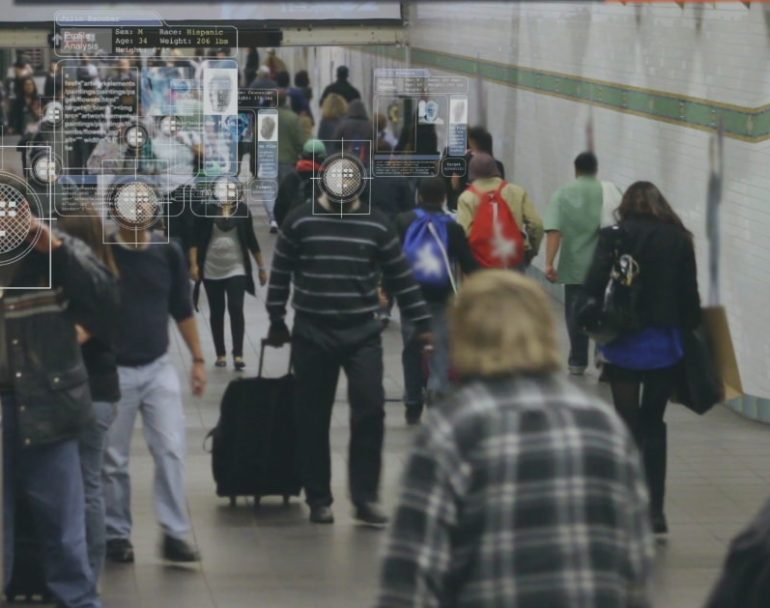
Massachusetts Bill Would Put Moratorium on Police Use of Facial Recognition
By: Mike Maharrey
BOSTON, Mass. (April 23, 2019) – A bill introduced in the Massachusetts Senate would place a moratorium on the use of facial recognition technology by law enforcement in the state and impose strict guidelines on any legislation authorizing the use of such technology in the future. The proposed law would not only help protect privacy in Massachusetts, but it would also hinder one aspect of the federal surveillance state.
Sen. Cynthia Stone Creem (D) along with a bipartisan coalition of 18 legislators, introduced Senate Bill 1385 (S1385) in January. The legislation would ban government agencies in Massachusetts, including law enforcement agencies, from acquiring, possessing, accessing, or using a facial recognition system without express statutory authorization passed by the state legislature. It would also prohibit government agencies from accessing information gathered by a facial recognition system operated by any other entity. Facial recognition technology would include technology that can recognize an individual by their gait, voice, or other immutable characteristic ascertained from a distance.
In effect, S1385 would completely ban facial recognition technology in Massachusetts until the legislature passes a law guiding its use. The bill includes guidelines the legislature would have to follow when drafting future laws authorizing the use of facial recognition to ensure rigorous protections for due process, privacy, free speech and association, and racial, gender, and religious equity.
Passage of SB1385 would take a first step toward permanently limiting the use of facial recognition technology.
IMPACT ON FEDERAL PROGRAMS
Federal, state and local law enforcement agencies are partnering to create a massive, nationwide facial recognition system. The FBI rolled out a nationwide facial-recognition program in the fall of 2014, with the goal of building a giant biometric database with pictures provided by the states and corporate friends.
The Center on Privacy and Technology at Georgetown Law released “The Perpetual Lineup,” a massive report on law enforcement use of facial recognition technology in the U.S. You can read the complete report at perpetuallineup.org. The organization conducted a year-long investigation and collected more than 15,000 pages of documents through more than 100 public records requests. The report paints a disturbing picture of intense cooperation between the federal government, and state and local law enforcement to develop a massive facial recognition database.
“Face recognition is a powerful technology that requires strict oversight. But those controls, by and large, don’t exist today,” report co-author Clare Garvie said. “With only a few exceptions, there are no laws governing police use of the technology, no standards ensuring its accuracy, and no systems checking for bias. It’s a wild west.”
With facial recognition technology, police and other government officials have the capability to track individuals in real time. These systems allow law enforcement agents to use video cameras and continually scan everybody who walks by. According to the report, several major police departments have expressed an interest in this type of real-time tracking. Documents revealed agencies in at least five major cities, including Los Angeles, either claimed to run real-time face recognition off of street cameras, bought technology with the capability, or expressed written interest in buying it.
In all likelihood, the federal government heavily involves itself in helping state and local agencies obtain this technology. The feds provide grant money to local law enforcement agencies for a vast array of surveillance gear, including ALPRs, stingray devices and drones. The federal government essentially encourages and funds a giant nationwide surveillance net and then taps into the information via fusion centers and the Information Sharing Environment (ISE).
Fusion centers were sold as a tool to combat terrorism, but that is not how they are being used. The ACLU pointed to a bipartisan congressional report to demonstrate the true nature of government fusion centers: “They haven’t contributed anything meaningful to counterterrorism efforts. Instead, they have largely served as police surveillance and information sharing nodes for law enforcement efforts targeting the frequent subjects of police attention: Black and brown people, immigrants, dissidents, and the poor.”
Fusion centers operate within the broader ISE. According to its website, the ISE “provides analysts, operators, and investigators with information needed to enhance national security. These analysts, operators, and investigators…have mission needs to collaborate and share information with each other and with private sector partners and our foreign allies.” In other words, ISE serves as a conduit for the sharing of information gathered without a warrant. Known ISE partners include the Office of Director of National Intelligence which oversees 17 federal agencies and organizations, including the NSA. ISE utilizes these partnerships to collect and share data on the millions of unwitting people they track.
In a nutshell, without state and local cooperation, the feds have a much more difficult time gathering information. Passage of SB1385 would set Massachusetts on a path toward limiting the gathering of facial recognition data. Simply put, data that doesn’t exist cannot be entered into federal databases.
WHAT’S NEXT
SB1385 was referred to the Joint Committee on Public Safety and Homeland Security where it must pass by a majority vote before moving forward in the legislative process.